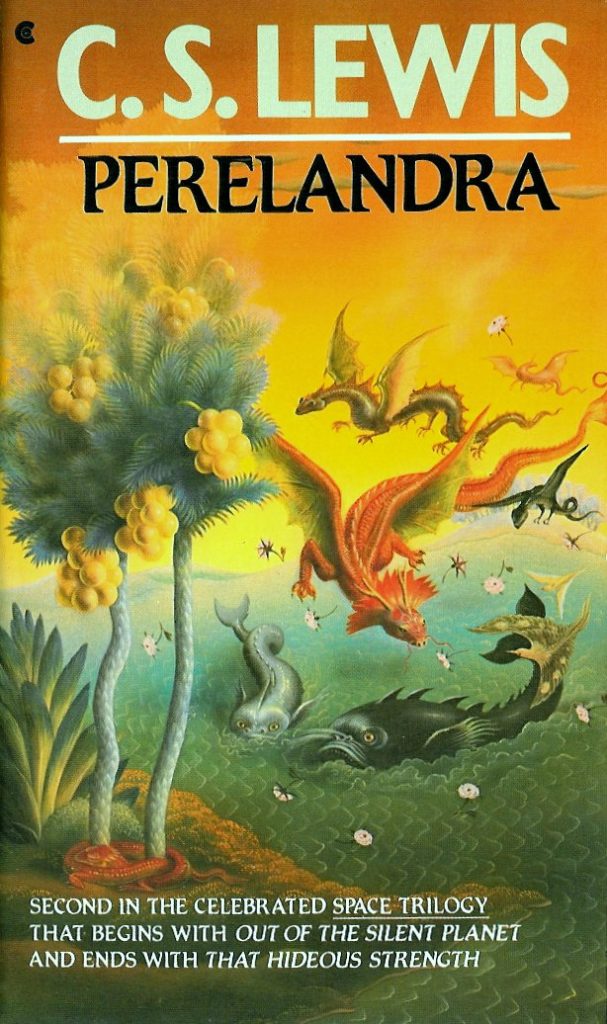I’ve been hard at work developing my course on C. S. Lewis’s Ransom Trilogy, and just completed my preparation for teaching the second book, Perelandra. This mythical novel, which at least one critic said should have been written as a poem rather than in prose, tells the story of an unfallen world (which we call Venus), a temptation for its first inhabitants to follow in Earth’s fateful path of rebellion against the Creator, and the attempt by a chosen earthling to stop a Fall that would have been as disastrous as that of Earth’s.
Perelandra, a world of floating islands, indescribable beauty, and Edenic bliss, is on the precipice: will the couple who are their world’s Adam and Eve succumb to the temptation of disobeying Maleldil’s [God’s] one command? Why send an ordinary man from Earth to keep this from happening? How can he ever succeed when he has to out-argue a demonic presence with centuries of practice at deceiving humanity?
How did the idea for a novel like this originate in Lewis’s mind? In the volume of Lewis essays titled On Stories, there is, at the end, a discussion Lewis had with two other writers shortly before Lewis’s health led him to resign his position at Cambridge in 1963. In this discussion, which I think is one of the lesser-known pieces that includes Lewis’s thoughts, we get his explanation.
Lewis’s comments reinforce what he says in some of his essays: he gets an image in his mind, seeks to find a story that fits the image, and naturally gravitates toward his Christian convictions in the working out of the story. That’s exactly how he explained the genesis of Narnia. In both cases, he used the word “supposal” to clarify his approach. As he wrote to one of his correspondents, “Suppose, even now, in some other planet there were a first couple undergoing the same that Adam and Eve underwent here, but successfully?”
Helped along with his thinking at the time was his recent undertaking, A Preface to Paradise Lost. What if paradise hadn’t been lost? Lewis’s profound imagination as showcased in Perelandra has made this book a favorite for many Lewis readers. Chad Walsh, an American English professor who read the novel shortly after its publication, acknowledged that it helped lead him from his atheist past into a full-fledged Christian faith. He commented,
When he wrote Out of the Silent Planet, the first book of the trilogy, he was more subtle in his inclusion of Christian doctrine and faith, but not so in Perelandra, as David Downing notes,
Perelandra caught the attention of secular critics. Here are two short comments that reveal its reception:
I’ll turn again to David Downing for an apt summary:
Teaching the Ransom Trilogy this fall will undoubtedly be a highlight of my year. I look forward to elaborating on the beauty and depth of Perelandra with my class at All Saints’ Episcopal Church in Lakeland, Florida. But you don’t have to live in Lakeland to be part of the class. It will be offered via Zoom as well. I’ll provide more details as the time draws near.









